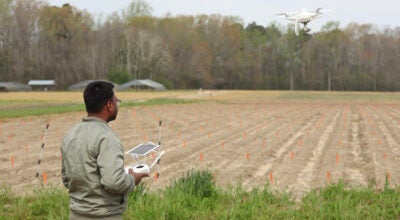Refund, not repayment
Published 9:21 pm Saturday, August 3, 2013
City: Law did not allow collection of back taxes
The city of Suffolk says state law not only permitted it to autonomously refund a taxpayer $330,000 for erroneous real estate taxes spanning almost a decade, but prevents it from suing for lost revenue due to a 10-year rehabilitation credit that should never have been approved.
Questions were raised when the Suffolk News-Herald revealed Nansemond Cold Storage, owned by businessman Charles Pond, received the refund after a commercial building at 160 County Street was found to have been taxed twice.
The company apparently only discovered it had been paying double taxes— the origin of which the city says it is investigating — when it sold the property last year. The city says it is unaware of any previous cases of double taxation.
While state law places a three-year limitation on a municipality’s ability to refund property taxes, beyond which a court must act, Suffolk says it was able to offer a nine-year refund behind closed doors, because it and the taxpayer were in agreement that two identical taxes were paid, one correct and one in error, making a court decision unnecessary.
The city quoted a state statute reading in part, “When it is shown to the satisfaction of the court that there has been a double taxation … the court may order such erroneous taxes to be corrected.”
“We resolved a matter which the property owner had a right to bring to court,” said William Hutchings, deputy city attorney.
The city now says the same three-year rule it claims it lawfully circumvented to issue the costly refund also drastically limited how far it could back-charge Nansemond Cold Storage for lost revenue from the erroneous rehabilitation credit.
Suffolk’s rehabilitation credit program excuses for 10 years the initial spike in assessment after a building’s rehabilitation. But a tax exemption for the Nansemond Cold Storage building that was authorized under then-assessor Maria Kattmann in November 2001 was inappropriate, because the structure was new — not rehabilitated — and did not qualify for the credit, city spokeswoman Debbie George stated.
The state code’s three-year limitation, which Hutchings said applies to supplements as it does refunds, meant the city could charge back taxes for only 2010 and 2011, totaling $25,529.32, George stated.
George added that the value of the credit changes with the property market, but the error — which the city is also probing — could have cost Suffolk more than $200,000.
While Virginia taxpayers can sue municipalities for refunds beyond three years, George stated, “The code does not give the City Assessor the right to sue to increase the assessment farther back than three years.” An emailed request for the relevant statute went unanswered.
The city discovered the erroneous credit when researching the double assessment brought to assessor Jean Jackson’s attention about March 2012, the same time, according to George, when Nansemond Cold Storage threatened litigation.
Asked when the Assessor’s Office decided to approve the refund, George did not provide a date, stating: “After thorough research which revealed the property owner was correct and the property had been double assessed.”
The refund was issued March 19, 2013, according to city Treasurer Ron Williams. George stated the supplement has been billed and is due Aug. 14.
“There was no settlement document,” George stated. “The city attorney and the city manager were not aware of the refund until after it had been issued.”
Charles Pond, yet to speak publicly on the case in any detail, declined to comment, according to a Nansemond Cold Storage worker asked to relay an invitation.






